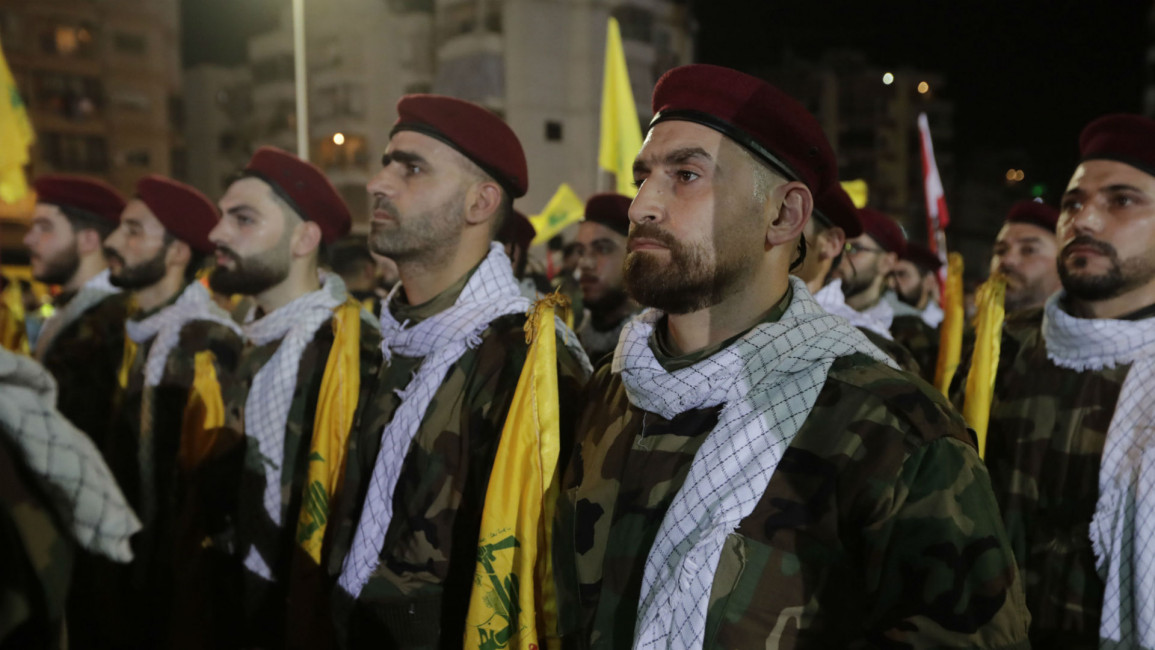US sanctions Hizballah leader suspected of 1994 attack in Argentina
Salman Raouf Salman’s assets were frozen for acting for or on behalf of Hizballah, the US Treasury sanctions, said, while the State Department offered a $7 million reward for information on his location.
Salman "coordinated a devastating attack in Buenos Aires, Argentina against the largest Jewish centre in South America 25 years ago and has directed terrorist operations in the Western Hemisphere for Hizballah ever since," said Sigal Mandelker, the US Treasury's Under Secretary for Terrorism and Financial Intelligence.
Hizballah is considered to be a terrorist organisation by the United States, and is the only political faction not to have disarmed after Lebanon’s 1975-1990 civil war.
But it is also a major political player in Lebanon, with its support base mainly in the Shia Muslim community. It won 13 seats in parliamentary elections last year and has three posts in the current cabinet.
The move came just hours after Argentina on Thursday branded the entire Lebanese group Hizballah a terrorist organisation and froze its assets to mark the event.
The nation's Financial Information Unit took the action a day after President Mauricio Macri's government created a list of terrorist organisations to help coordinate actions with other nations and as the nation held memorial services for victims of the attack, for which no one has been convicted.
The unit noted that Hizballah has been accused of responsibility for a 1992 attack on the Israeli Embassy in Argentina that killed 29 people, as well as the 1994 attack on the Argentine-Israelite Mutual Association in Buenos Aires. Hundreds were injured in both bombings.
"At the present time, Hizballah continues to represent a current and active threat to national security and the integrity of the financial, economic order of the Argentine Republic," the unit said.
It's not clear how much impact the ruling will have or how many assets Hizballah might have in Argentina. The group already has been put on terrorism lists by the US, the European Union and several other nations.
At midmorning Thursday, sirens resounded across the Argentine capital to honour the 85 people who died the nation's worst terrorist attack.
Read more: Israel goes to UN to define Hizballah as 'terrorists'
Argentine prosecutors blame Iranian officials for plotting the attack and say Hizballah operatives carried it out. But nobody has been convicted despite years of tangled investigations. Iran has refused to turn over the former officials and ex-diplomats who now face charges, and denies any involvement.
The memorial service began with a moment of silence, followed by a reading of the names of each of the 85 victims.
"How is it possible that 25 years later there has not been a single responsible person imprisoned for this crime against humanity?" asked Ariel Eichbaum, president of the association, which is known by its Spanish initials, AMIA.
"We continue to have questions to which there are still no answers. Twenty-five years have passed and the wound remains open, a wound that cannot be closed without justice," he added.
The investigation into the attack was plagued with irregularities from the start. A court in 2004 absolves about 20 people who initially had been accused of being the "local connection" for the attack and called for an investigation into a possible cover-up by the government of President Carlos Menem, who had left office in 1999.
A court this year cleared Menem of charges he had interfered to protect a friend implicated in the case. But the initial judge in the case, two prosecutors and a former intelligence police chief were found guilty of embezzlement and cover-up in the case.
Another former president, Cristina Fernández, faces trial along with 11 other people on separate charges of cover-up based on a deal with Iran that would have let a special international truth commission question those accused in the case, but with no guarantee they would be arrested. She denies any wrongdoing.
Special prosecutor Alberto Nisman originally brought such charges in 2015, but was found dead of a gunshot wound in his apartment a few days later. No one has been convicted in that case.
US Secretary of State Mike Pompeo was flying to Argentina to attend another memorial service on Friday as well as an international counterterrorism conference.
Follow us on Twitter: @The_NewArab



